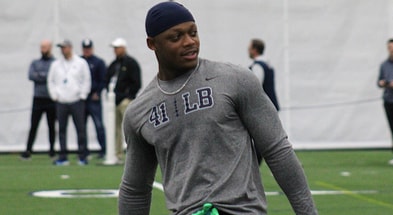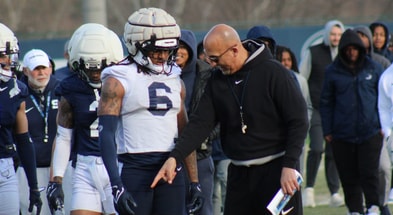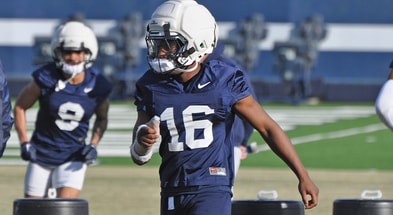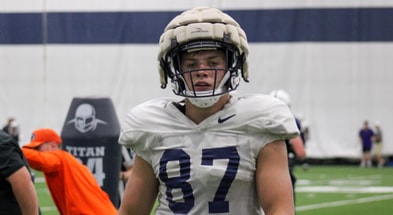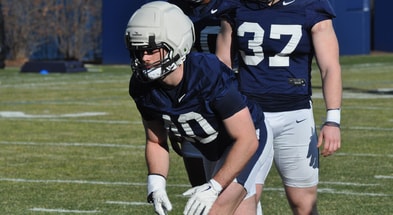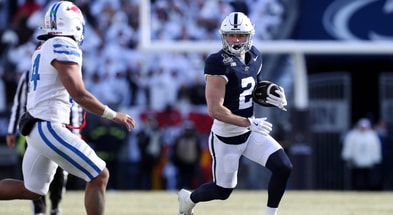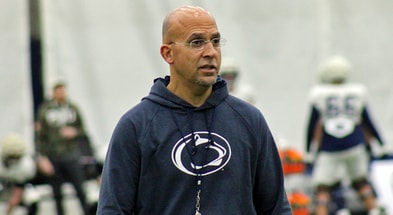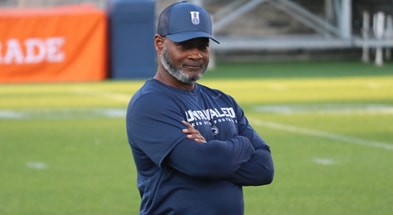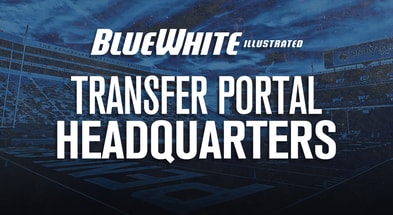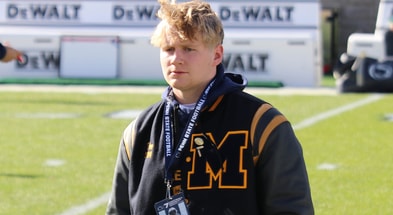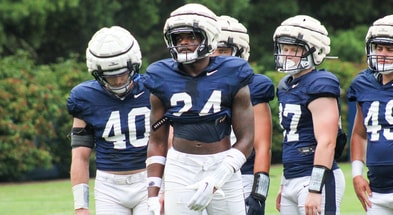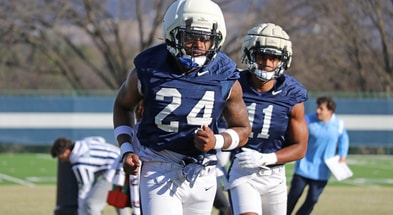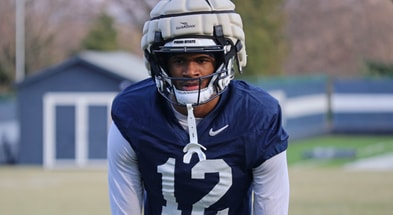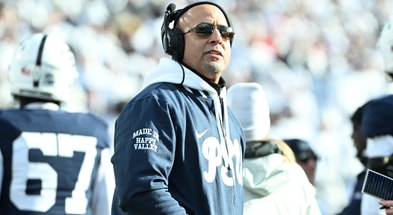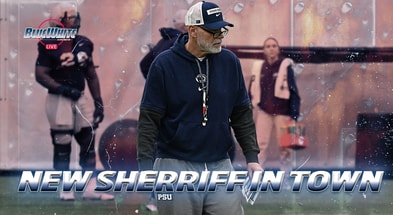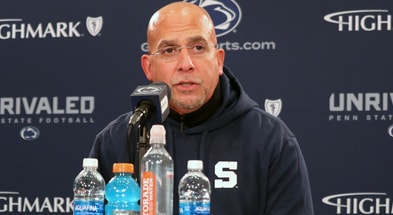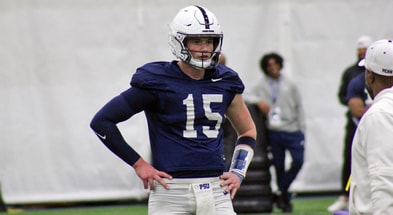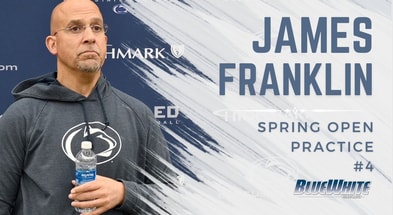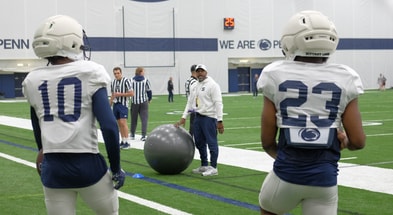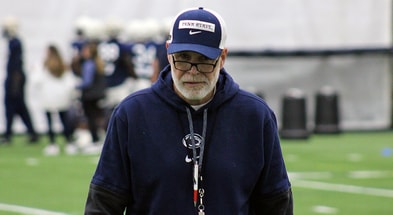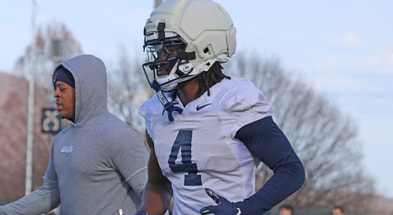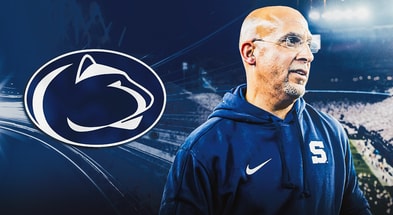Penn State AD Pat Kraft talks where the Lions' NIL efforts are and where they must go moving forward

Indianapolis, Ind. — Name, image, and likeness talk has been a theme tied to the Penn State Athletic department this summer. And, it continued here at the JW Marriot hotel on Tuesday night ahead of Big Ten Media Days across the street at Lucas Oil Stadium.
Second-year Nittany Lions athletic director Pat Kraft covered plenty of ground with reporters during a nearly 20-minute question-and-answer session. Unsurprisingly, talk about where the NIL efforts are in State College, and where they must go from here, were a big part of the back and forth. The discussion started with a request for Kraft to react to head football coach James Franklin’s recent comments on the ‘Get Up with Adam Breneman’ podcast about the Lions being two years behind other national powers in their NIL pursuits.
“This is such an evolving space,” Kraft said. “I thought the collectives coming together was a really important piece. Obviously you know, with the collectives, it’s the one thing in our athletes’ world that we really can’t be intimately involved in. But I think that confusion in the marketplace, like anything else, it is important that they come together.”
He was speaking about the newly-created Happy Valley United, of course, which put the Lions Legacu Club and Success With Honor collectives under one umbrella.
Penn State is behind but making up ground
That is Kraft’s stance. And, it’s an unsurprising one. The leader of the Penn State athletic department has no issue being loud and proud about its successes while also being vocal and honest about where it can improve.
“We have to really continue to educate why this is really important,” Kraft said. “The way we look at it is, this is the new scholarships. So we’ve been raising money for scholarships. We will continue to raise money for scholarships. But, the NIL piece is becoming more and more prominent, and it’s not just in football. It is now in every sport. And so, you know, James is passionate, because I think, as we look at where we are, we got to continue to get better at it. But I will say this, I think we’re in a much better spot.
Top 10
- 1New
Urban Meyer
Crushes state of NIL
- 2
FSU Shooter
Police identify shooter
- 3Hot
Carson Beck
Talks trash to Miami OC
- 4
Tampering accusation
Deion Sanders calls out UVA
- 5Trending
Chad Baker-Mazara
Auburn star entering portal
Get the On3 Top 10 to your inbox every morning
By clicking "Subscribe to Newsletter", I agree to On3's Privacy Notice, Terms, and use of my personal information described therein.
“From what I understand, this is now the Happy Valley United crew coming together, and it’s a business. There’s going to be people hired to fundraise, and that’s what it is, right? And if we’re going to continue to be the best, we should have the best collective. I’ve said that from day one. It’s just so fluid. State laws are changing. It’s just a convoluted thing right now.
“I think we’re behind, but I think we’re making up ground fast, and at a pretty good clip.”
An educational push will continue in State College
Remember the line above about this topic being a theme of the summer? Well, one well-worn point that has been used during it is that Penn State needs its fan base to realize that it’s not only OK to donate to collectives but also a necessity moving forward.
“I think if you look nationally there’s just a different perspective towards it,” Kraft said. “And I would say this in the Big Ten too, but at our place, you’re trying to educate a fan base that’s like, and I’ve said from the very beginning, the whole thing, it’s just different to all of us. You’re like, ‘Wait, you have a $100,000 BMW?’ That was like, ‘No, stay away from it!’ And so just the reality of changing the whole tone and tenor towards this, you know, athletes making money, which we all believe is the right thing to do, and so it’s just taking us time to move this battleship to say, ‘No, it’s okay. This is okay.’
“Then you got to run the operations of it. You don’t know which way to look, because the guidelines are all over the place. And so you’re like, ‘How do you maneuver this?’ So I think that was it. I came in and there was nothing. Like, nothing, and we really struggled. The collective was up and running, but now they’re sophisticated businesses. They’re outside entities now.”

